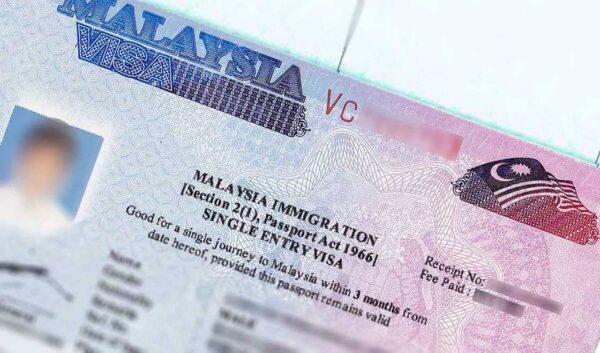There is perhaps no destination for immigrants as popular as Canada today. The country has developed a very lucrative and advantageous allure in its reputation. Canada has emerged as a great option for immigrants looking to work in an established and exceptional economy. A Canadian work visa could be your key to unlocking a rewarding career in the Americas. However, if you're thinking of working in Canada, you need to get familiar with the Work Visa. Let's discuss what it is, how much a Canadian Work visa would cost, and how to apply for one.
What is a Canadian Work Visa?
A Canadian work visa, officially categorized, is the primary pathway for foreigners looking to work legally in the country. Canada also prides itself on a transparent immigration system that supports skilled professionals and fosters access to advanced infrastructure, excellent healthcare, and dynamic career prospects. The country attracts talent from across the globe to support its growing industries and strengthen its economic position. Canadian work visas are also alternatively called Canadian work permits.
Navigating the work visa process in Canada may initially seem overwhelming, but it can become straightforward with proper guidance. Whether you dream of working in Toronto’s bustling finance hub or enjoying a quieter lifestyle in Saskatchewan, understanding the cost of a Canadian visa will lead you to success.
How Much Does A Canadian Work Visa Cost?
The cost of a Canadian work visa depends on the type of visa and individual circumstances. The following are the most popular Canadian work visas and their relative costs.
1. Employer-Specific Work Permits
These permits, tied to a specific job and employer, cost CAD 155 per application. An employer compliance fee of CAD 230 is also required for the employer to obtain a Labour Market Impact Assessment (LMIA), which supports the application. Biometrics, priced at CAD 85, are mandatory. Extensions or changes to the permit and employment contract involve additional charges of CAD 155. Applicants must ensure the employer meets Canadian regulations to avoid delays or denial.
2. Open Work Permits
An open work permit costs CAD 255, which includes the CAD 155 application fee and an open work permit holder fee of CAD 100. These permits allow applicants to work for any employer without the need for an LMIA. Biometrics (CAD 85) and medical exams are usually required. Extensions cost the same as the original permit. This option is ideal for spouses of students or Federal skilled workers, international graduates, and those under the International Mobility Program.
3. International Mobility Program (IMP) Work Permits
Work permits under the IMP also cost CAD 155. These permits focus on exempting employers from the LMIA requirement, reducing employer costs and time. Biometrics (CAD 85) and other additional fees still apply. The program caters to workers under agreements like CUSMA (formerly NAFTA) or cultural exchange programs. Employer compliance fees may still apply depending on the job type.
4. Post-Graduation Work Permits (PGWP)
The cost of a PGWP is CAD 255, covering the CAD 155 application fee and a CAD 100 open work permit holder fee. These permits are available to international students who graduate from eligible Canadian institutions. Biometrics fees of CAD 85 may also be required. PGWPs allow graduates to work for any employer and gain valuable Canadian work experience. Renewals or changes are subject to standard fees.
5. Intra-Company Transfer Work Permits
These permits are designed for employees transferring within the same company and cost CAD 155. Additional charges, such as biometrics (CAD 85) and employer compliance fees (CAD 230), may also apply. The processing time varies depending on the applicant's location. These permits are beside the stricter International Mobility Program and typically have fewer eligibility requirements compared to other work permits.
Factors That Affect Canadian Work Visa Costs
Work visa costs depend on various factors, such as the type of work visa, aggregate processing fees, and any additional services required. Work permits usually have higher accompanying fees than other visitor visas or temporary resident visas. Factors like biometric fees, language testing, or medical exams can increase the overall expense.
These work visa applications also involve higher costs due to comprehensive assessments. The Canadian government usually determines these set permit fees, but they may vary depending on policy changes or exchange rates. Applicants should review all associated charges beforehand to avoid unexpected expenses during the application process.
Reasons for Delay in Work Visa Processing
Work visas in Canada usually take 1 to 5 months to process, depending on the visa type and the applicant’s country of residence. Employer-specific work permits may take longer due to additional compliance requirements. Open work permits, granted to any Canadian employer, are less restrictive and often have shorter processing times. Delays are common during peak periods or when additional information is requested. Applicants should always apply well in advance to accommodate processing timelines.
Processing times for Canadian work visas vary depending on the work visa type, country of application, possibility of temporary resident permit and volume of applications. Delays can lead to additional expenses, such as extending medical tests, renewing passports, or reapplying if documents expire during the process. For example, a temporary short stay (TS-1) work visa may take weeks to process, while something like an Employer-sponsored application can take several months or longer.
Applicants who need expedited processing may incur extra charges. Understanding the typical timelines for this process helps with effective planning and budgeting. Updating documents and submitting accurate applications also minimize delays, saving time and money.
How to Pay for Your Canadian Work Visa
Visa fees can be paid online via credit or debit card or through authorized visa application centers. However, all payments must be made in Canadian dollars, and currency conversion fees may apply. To avoid delays, ensure your payment platform is accepted.
Please retain receipts as proof of payment, as they are essential for processing. Some centers may accept cash or money orders, but this varies by location. You should also endeavour to avoid fraudulent agents by using official channels.
Are There Refunds for Canadian Work Visa Fees?
Work visa or any other visa fees are generally non-refundable, even if an application is denied. However, refunds may apply in specific cases, such as withdrawal, before processing begins. You should always review refund policies to understand your rights as an applicant.
Applications with errors can result in forfeited fees, emphasizing the need for accuracy when filling out forms. Refund requests are usually submitted online or through authorized centers. Knowing refund conditions can help applicants minimize financial risks.
Tips to Avoid Additional Costs on Your Application
Here are some tips on how to avoid incurring additional costs on your Canadian work visa application:
- Submit a complete and accurate application to avoid delays and extra charges.
- Check for updated fees regularly, as changes may occur.
- Meet all deadlines to prevent costly extensions or renewals.
- Use official government websites to avoid third-party service fees.
- Ensure your documents are properly translated and certified if required.
- Avoid errors in biometrics or medical exam submissions.
- Double-check all requirements to reduce the risk of reapplication fees.
Why Should I Want A Canadian Work Visa?
We've iterated the cost of a Canadian Work Visa; now, let's explain the benefits of spending your hard-earned money. Acquiring and owning a Canadian Work Visa confers several benefits for foreign workers. If you're considering working in Canada, you can count yourself among many professionals worldwide.
Access to Global Markets
Canada is strategically positioned as a gateway to North American markets and offers robust trade connections with Europe and Asia. These are brokered through agreements like CUSMA and CETA. Foreign professionals can gain almost unlimited access to industries such as technology, finance, natural resources, and manufacturing. Working in Canada also allows migrants to collaborate with multinational companies and participate in cutting-edge projects.
World-Class Infrastructure
Canada boasts advanced infrastructure, supporting industries from transportation to telecommunications. The country's well-connected cities and modern facilities are particularly beneficial for professionals in logistics, technology, and urban planning. This infrastructure ensures efficient business operations, creating an environment where skilled migrants can thrive and make meaningful contributions to their fields.
Supportive Immigration Policies
Canada’s immigration system, including programs like Express Entry and Provincial Nominee Programs (PNPs), is tailored to attract skilled workers. These initiatives prioritize individuals with expertise in high-demand fields like healthcare, engineering, and IT. Additionally, the work visa pathways to become permanent residents offer long-term stability, making Canada an attractive choice for workers seeking a secure resident status.
High Standard of Living
Canada consistently ranks among the best countries for quality of life, offering universal healthcare, excellent education, and safe communities. While cities like Toronto and Vancouver have higher living and Canadian work visa costs, the wages and benefits often offset expenses. For migrants, smaller provinces provide affordable living options while maintaining access to essential services and strong job prospects. There are a myriad of job opportunities, particularly in industries like agriculture and energy.
Research and Innovation Opportunities
Canada invests heavily in research and development, particularly in fields like artificial intelligence, clean energy, and biotechnology. Institutions like the University of Toronto and partnerships between academia and industry provide migrants with opportunities to engage in pioneering projects. Students or dependent children on scholarly/study permits can apply for full Canadian work visas at minimal cost. This emphasis on innovation positions Canada as a hub for professionals seeking cutting-edge career opportunities.
Conclusion
The Canadian Work Visa may cost significantly more to process than other visa travel documents around the world, but this is not without reason. The country enjoys special status as the most desirable immigration destination on the globe since 2021. This has made competition for these visas tough and populous. However, if you follow the above application steps, the cost of a Canadian work visa will be put towards something beneficial for you and your family.
















